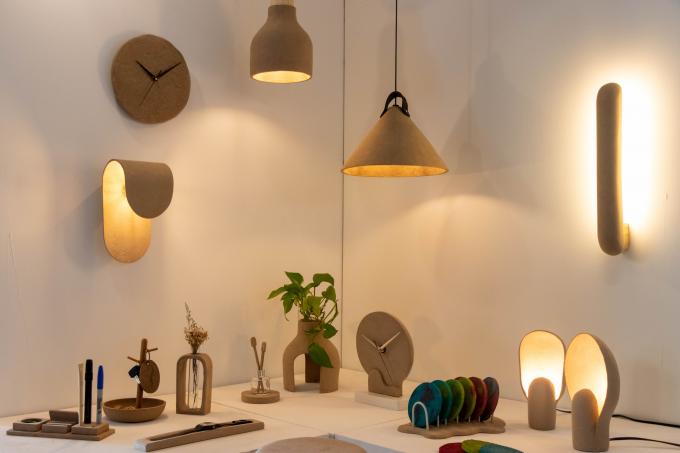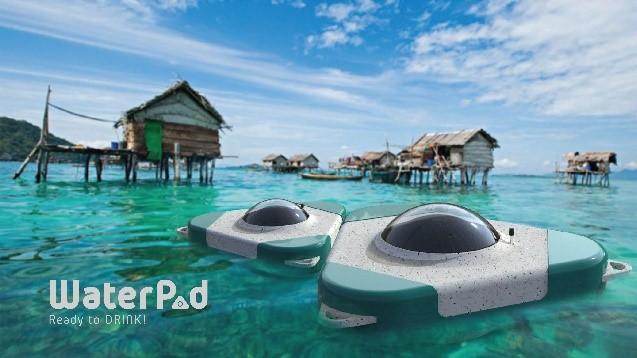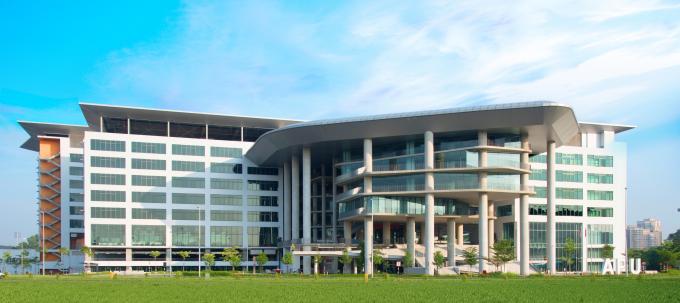According to the United Nations Industrial Development Organisation (UNIDO), industrial design is essential for achieving the 2030 Agenda for Sustainable Development and its 17 Sustainable Development Goals (SDGs) – particularly Goal 9 which focuses on infrastructure, innovation and sustainable industrialisation.

Sustainable Design is one of the specialised areas that a student pursuing a Bachelor of Arts (Honours) in Industrial Design at Asia Pacific University of Technology & Innovation (APU) can delve into, along with other modules such as Product Design, Transport Design and Furniture Design.
APU School of Media, Arts and Design (SoMAD) programme leader Christine Lim Pei Shin shares that industrial design not only plays a pivotal role in sustainable development but also contributes to the circular economy, as it shapes our material environment to meet our needs and desires, while minimising negative environmental impacts.
“By selecting eco-friendly materials, reducing waste, optimising energy usage, influencing user behaviour towards sustainability and facilitating recycling or repair, industrial designers can drive the transition towards a circular economy,” she says.
The circular economy is a system aimed at addressing climate change, global issues and preserving our planet, so that materials never become waste and nature is regenerated.

Given this context, APU's industrial design programme is designed to equip students with the best design practices that prioritise circularity and sustainability.
Whether students choose the pathway of Sustainable Design, Product Design, Transport Design or Furniture Design, the curriculum is equally infused with circularity principles, sustainable practices and considerations for sustainability implications.
Focusing on the pathway of Sustainable Design, curated for those with a keen interest in global sustainability efforts, individuals will learn more on the principles of eco-design.
This provides them with the knowledge to create products and systems that have minimal environmental impact.
Sustainable Design students are taught to design with considerations for energy efficiency, waste reduction, recyclability and reusability, providing a comprehensive understanding of the product lifecycle from a sustainable perspective.
This approach aligns with the principles of the circular economy, preparing students to be forward-thinking designers capable of developing innovative, environmentally friendly solutions.
The teaching methods employed by SoMAD to foster Sustainable Design thinking include tasks such as reimagining packaging for major global brands to adopt eco-friendly practices, creating alternative sustainable materials from industrial waste, designing items with repair and recycling to extend their lifespan and transforming collected corrugated board into a new sustainable synthetic composite.
APU students have showcased brilliant examples of sustainable inventions such as “Kuno”, a sustainable cooler fridge that requires zero electricity; “WaterPod”, a sustainable seawater desalination pod for sea nomads; and “Whalecro”, an underwater propulsion vehicle with a micro debris filtering system.
These designs garnered international recognition by winning the prestigious James Dyson Awards in 2020 (national winner), 2021 (national winner) and 2022 (national runner-up).

As global environmental concerns continue to grow, there is an increasing demand for industrial designers that are equipped with sustainability knowledge.

“As businesses strive to minimise their ecological footprint, and create products and systems that not only satisfy consumers but also respect our planet, designers who can blend aesthetics, functionality and eco-friendliness are highly sought-after,” says APU SoMAD head Debbie Liew Pooi Kuan.
“They are capable of guiding companies towards a more sustainable future. Furthermore, mastery of sustainable design principles positions designers at the forefront of this significant shift, making them key players in the drive towards a sustainable world.”
Both Lim and Liew agree that industrial design goes beyond creating aesthetically pleasing products, as it is a comprehensive process that requires a deep understanding of manufacturing techniques, market demands and user requirements.
“Industrial Designers are not just artists, they are problem solvers, strategists and system architects who ensure that every product is functional, manufacturable and tailored to customer needs,” adds Liew
“With their unique blend of creativity and practical knowledge, industrial designers play a crucial role in creating products that are not only visually stunning but also resonate with users and succeed in the marketplace.”
SoMAD provides advanced facilities with the latest technology to inspire creativity while arranging real-world industry projects that offer hands-on experience.
A key feature of the programme is individualised mentoring, where experienced lecturers with industry backgrounds – committed to staying relevant in their field – provide personalised guidance to help students reach their full potential.

Combined with strong industry connections, APU offers a balanced blend of theory and practical training, nurturing skilled designers ready to tackle future challenges.
In addition to tutorial sessions and consultation guidance, Industrial Design students engage in real industry class briefs facilitated by industry professionals.
This process provides students with constructive feedback to enhance their skills and valuable experience working with the industry through designated modules.
To further expand their portfolio and sharpen their skills, students are encouraged to participate in competitions and initiate network building through the school's strong connections.
Industrial Design students at APU have the option to participate in the APU-DMU Dual Degree Scheme, which awards them a pair of degree certificates and transcripts upon graduation – one from APU Malaysia and another from De Montfort University (DMU) in the UK.
You can also read this article HERE.
News & Happening
Download e-Brochures
Intake Calendar
Want to know more ?
Let’s Connect